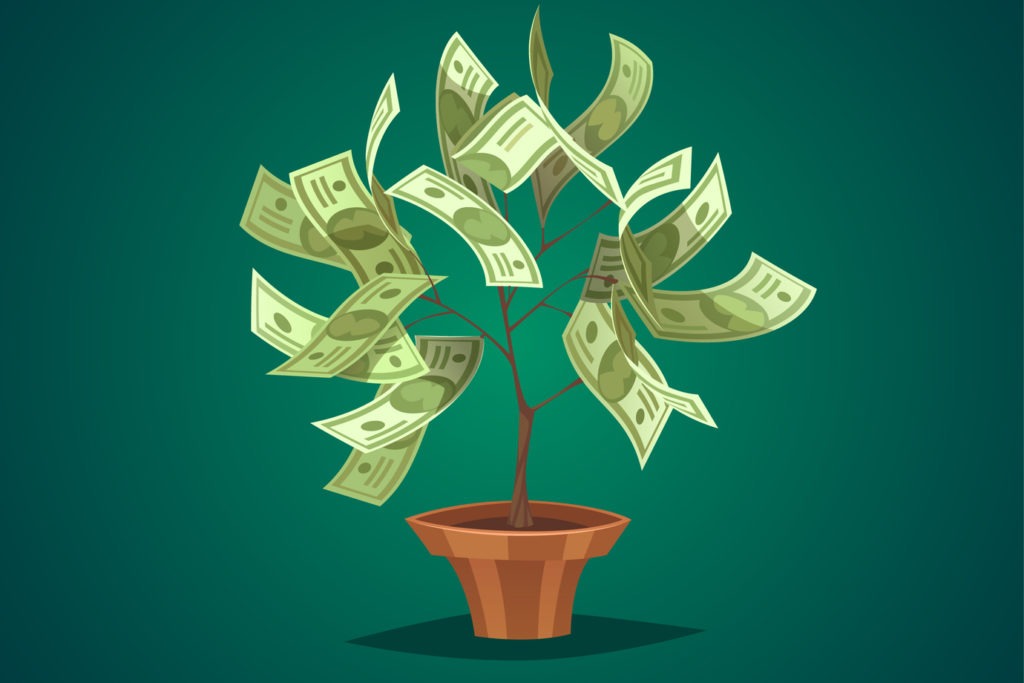First there was the $17.6 billion federal stimulus package. Then the $66 billion coronavirus “rescue package”. And, finally, the $130 billion support package, including a $1,500 fortnightly JobKeeper payment to help keep employees in work.
A succession of eye watering sums of money have featured in the public discourse in recent weeks.
It’s a lot to wrap your head around, particularly in the midst of a global pandemic when we are also digesting complex graphs charting how we are tracking in flattening the so-called curve alongside distressing mortality rates and ever-increasing unemployment figures. I get that.
But, dear reader, can I ask you to also consider a few additional eye-watering figures and, in the process, contemplate the value of women’s work? Or, perhaps more accurately, the systemic undervaluing of women’s work?
When the Prime Minister Scott Morrison announced the latest coronavirus spending spree he said this: “You may have thought that was a lot (of money)“. Consider this. According to a new analysis from Oxfam, if American women received a minimum wage for the unpaid care work they do around the house, including caring for relatives, they would have made $1.5 trillion last year.
Globally, women would have earned $10.9 trillion. That exceeds the combined revenue of the 50 largest companies on the Fortune Global list. Women perform 75 percent of such work globally.
As schools and childcare centres close, as elderly or disabled parents, friends or neighbours require additional support, and as individuals en-masse (at least those lucky enough to still have a job) work from home, it begs the question: who will take on the burden of the additional unpaid care and domestic work that goes along with these seismic changes?
The short answer, most experts agree, is women. At least in the short to medium term. Past behaviour predicts future behaviour and all that. And, there’s also the pesky gender pay gap to consider.
If, as is the case in the majority of heterosexual partnerships, couples are making the supposed “choice” between prioritising one partner’s job, it is more likely to be the man’s because, statistically, he’s likely to earn more and work full time. (We can debate the use of the word “choice” here, but that’s a discussion for another time.)
So, if we’re considering the eye-watering sums the Federal and State governments are investing to help us get through this pandemic and its associated social and economic fallout, perhaps we can also consider the eye watering sums women are being asked to invest in the form of additional, unpaid domestic labour and care? And perhaps we can, for a change, actually and properly value it?
“For too long, politicians have assumed the child-care and elderly care can be ‘soaked up’ by private citizens – mostly women – effectively providing a huge subsidy to the paid economy,” Helen Lewis recently wrote in The Atlantic. “This pandemic should remind us of the true scale of that distortion.”
Indeed.
Turning to the undervaluing of women’s paid work, this pandemic should also give us pause for serious thought.
Here’s a startling statistic: Of the 30 lowest-paying jobs, including food server, housekeeper and childcare worker, 23 are female dominated. Might those be the jobs on the so-called “front-line” of this pandemic?
Yes, I believe they are.
Leonora Risse, a Lecturer in Economics at RMIT University, National Chair of the Women in Economics Network of Australia, and a Research Fellow with the Women and Public Policy Program in the Harvard Kennedy School at Harvard University, recently analysed Australia’s COVID-19 “frontline” workforce, asking: who is keeping us healthy and alive, who is keeping us clean, who is keeping us fed, supplied and commuting, who is looking after our families, and who is keeping us safe?
While the total COVID-19 “frontline” workforce skewed male at 52 percent, compared to 48 percent female, the female dominated sectors tended to be lower paid. Sometimes scandalously low paid (early years educators, anyone?). What some of us might call “undervalued”.
For example, ambulance officers and paramedics (63 percent male) are concentrated in higher income brackets than nurses (89 percent female). Rubbish collectors (94 percent male) are also concentrated in higher income brackets than cleaners and laundry workers (59 percent female).
The reason work traditionally done by women is undervalued is precisely because it is done by women, and, therefore, closely associated with stereotypical ideas about women in domestic and caring roles. The women in these jobs are perceived as ‘naturally’ good at the job, with insufficient investment in or recognition of their skills.
When a profession previously dominated by men, such as banking, clerical work or teaching, is opened-up to large numbers of women, the status and pay decreases. Working in a female dominated occupation is more detrimental to your pay than being a woman per se – simply being employed in a female dominated occupation can reduce your pay by as much as 9 percent.
This pandemic is causing a dramatic reappraisal on many fronts. Who would have thought Australia would essentially see the introduction of a basic income?
The value of women’s work, or the traditional undervaluing of such work, should not escape such scrutiny.
There’s an old feminist adage that if women stopped undertaking unpaid and low paid work, the global economy would collapse. Now the global economy is in danger of collapsing, and it is women’s unpaid or undervalued work that is being called upon to help right the ship.
Now is the time to renegotiate what has always been a bad deal. It must not be dismissed as in poor taste to bring these issues up in the midst of a crisis — or kicked into the long grass for consideration “later”.
Even in times of crisis, women can’t be expected to write a blank cheque from their already grossly depleted individual and collective accounts.
Kristine Ziwica is a regular contributor. She tweets @KZiwica



